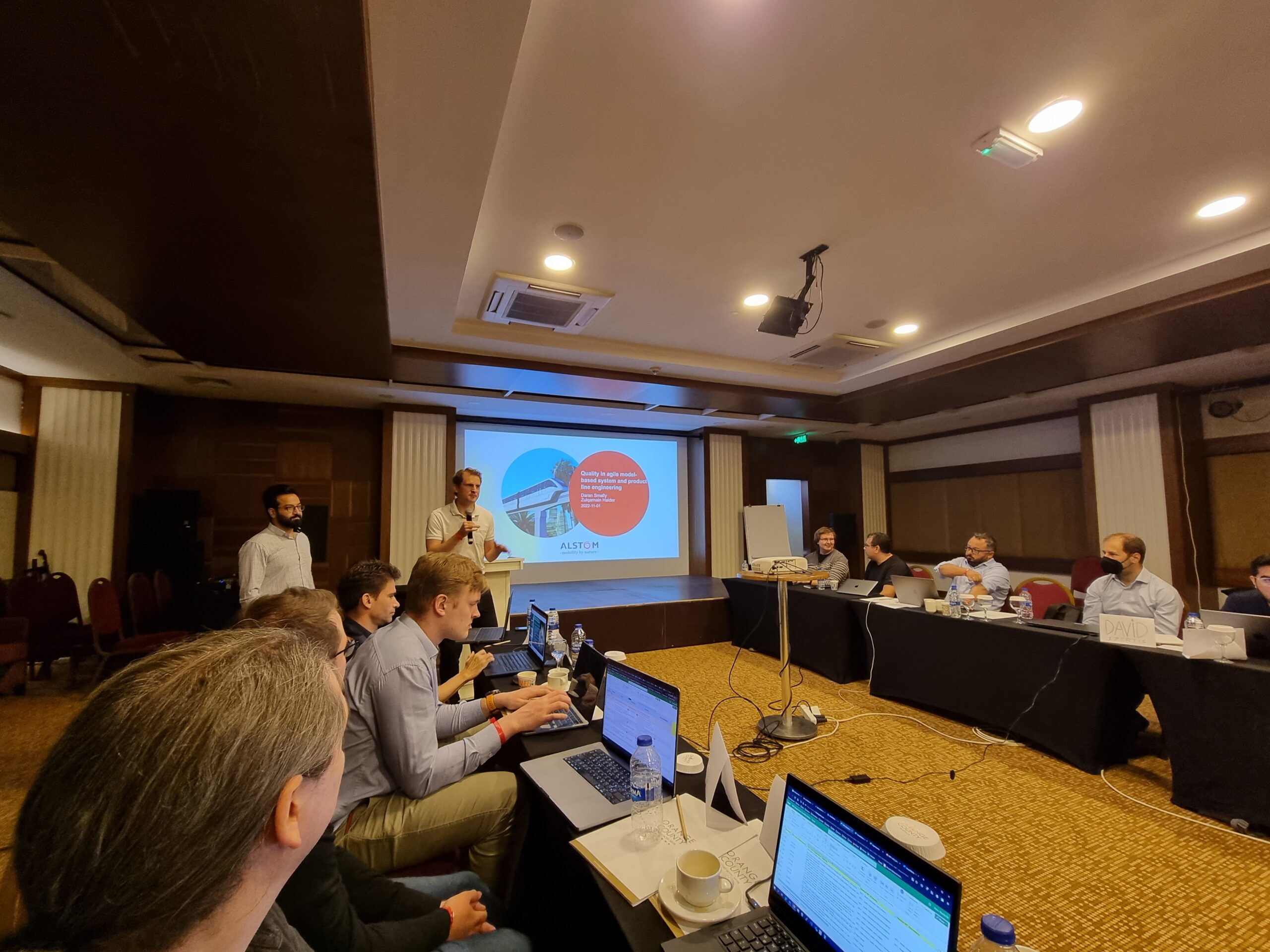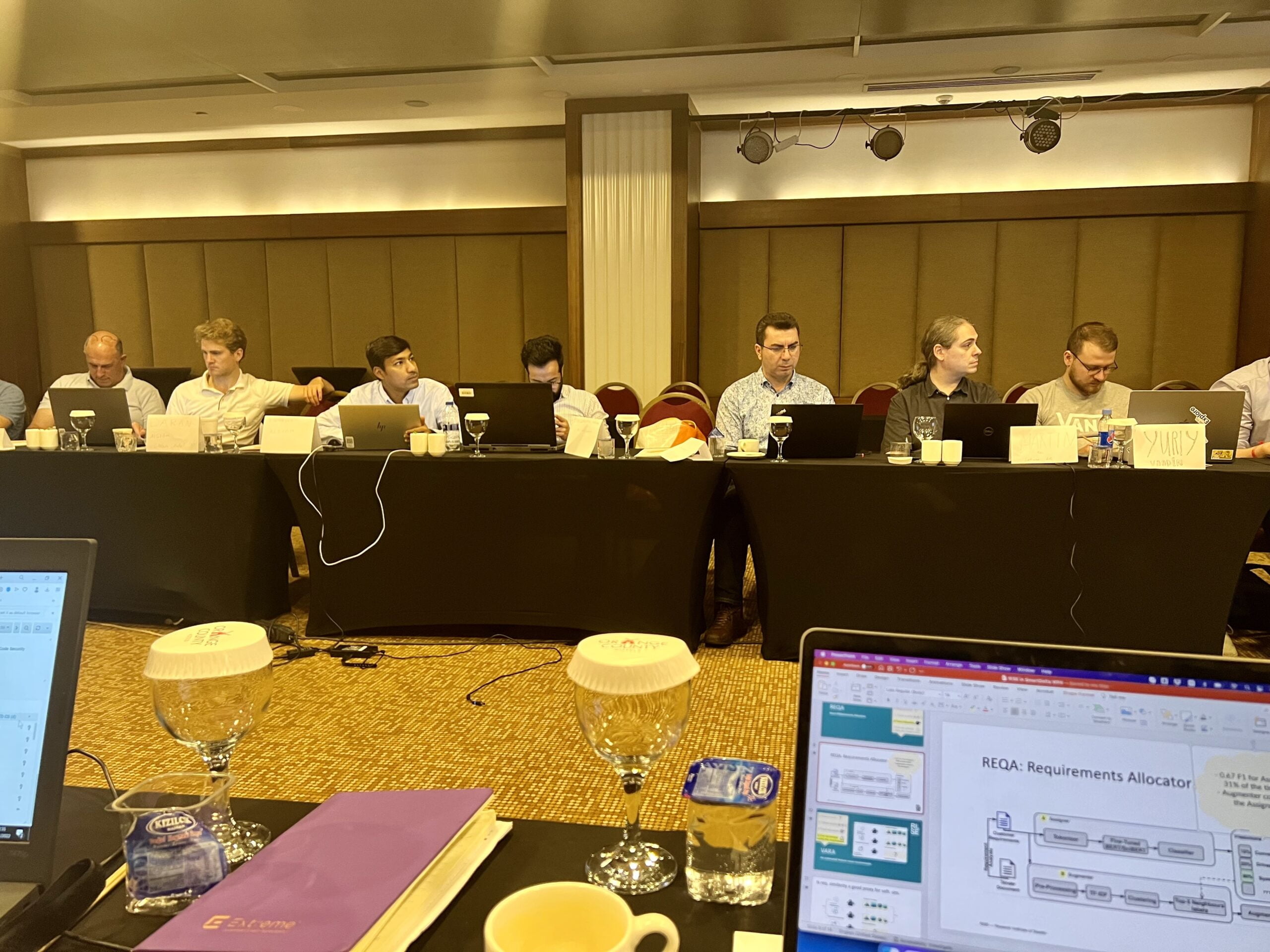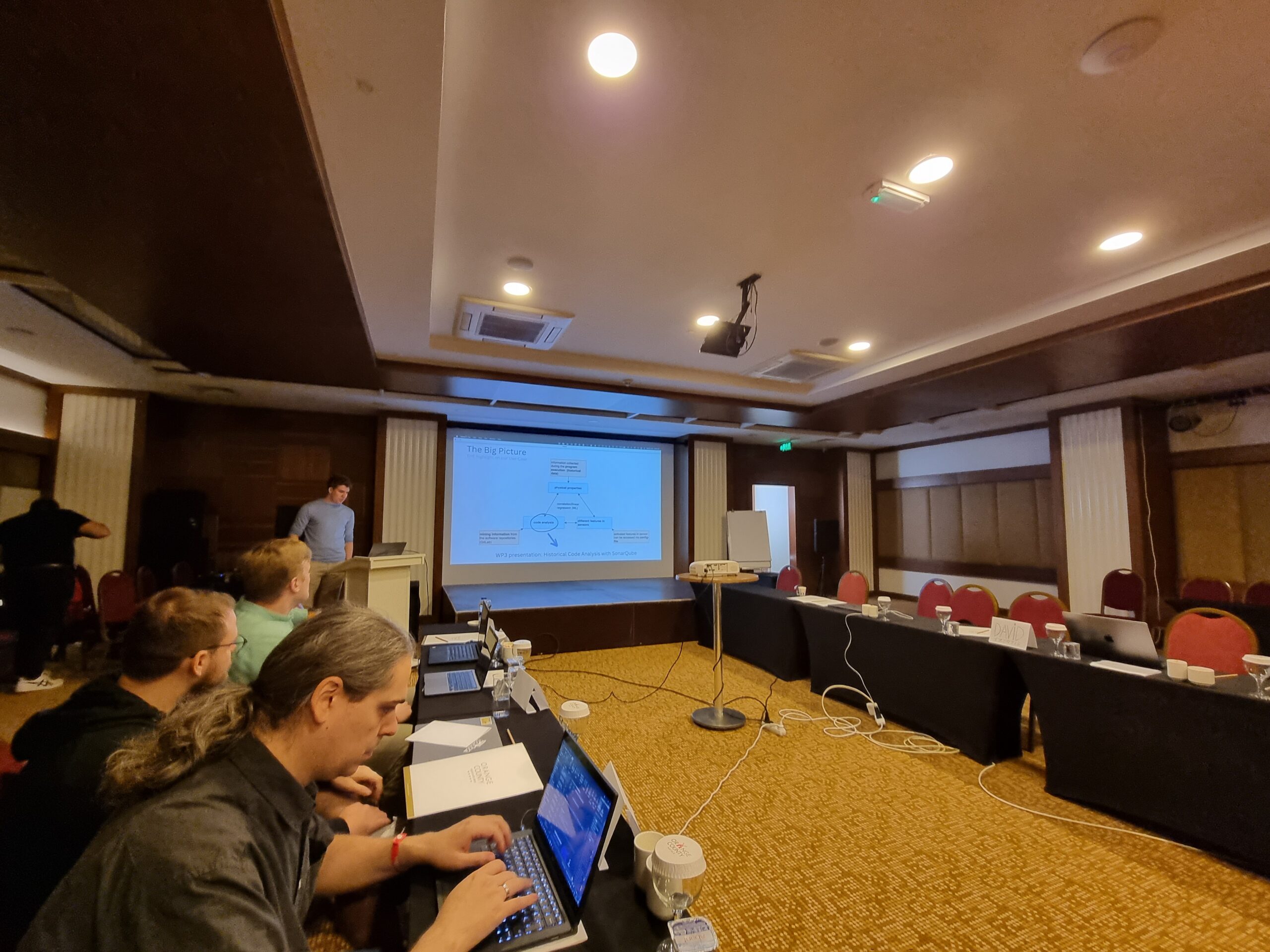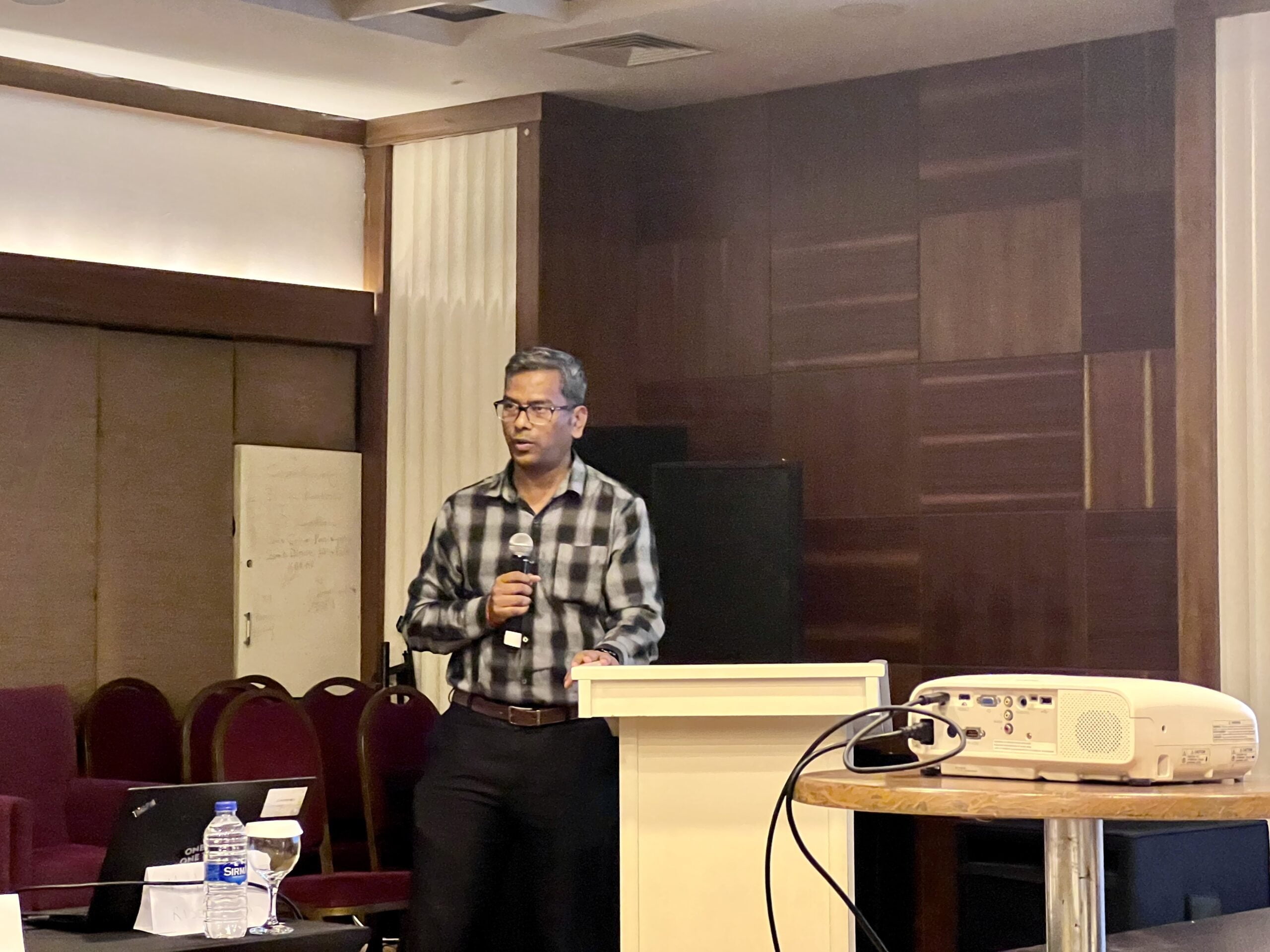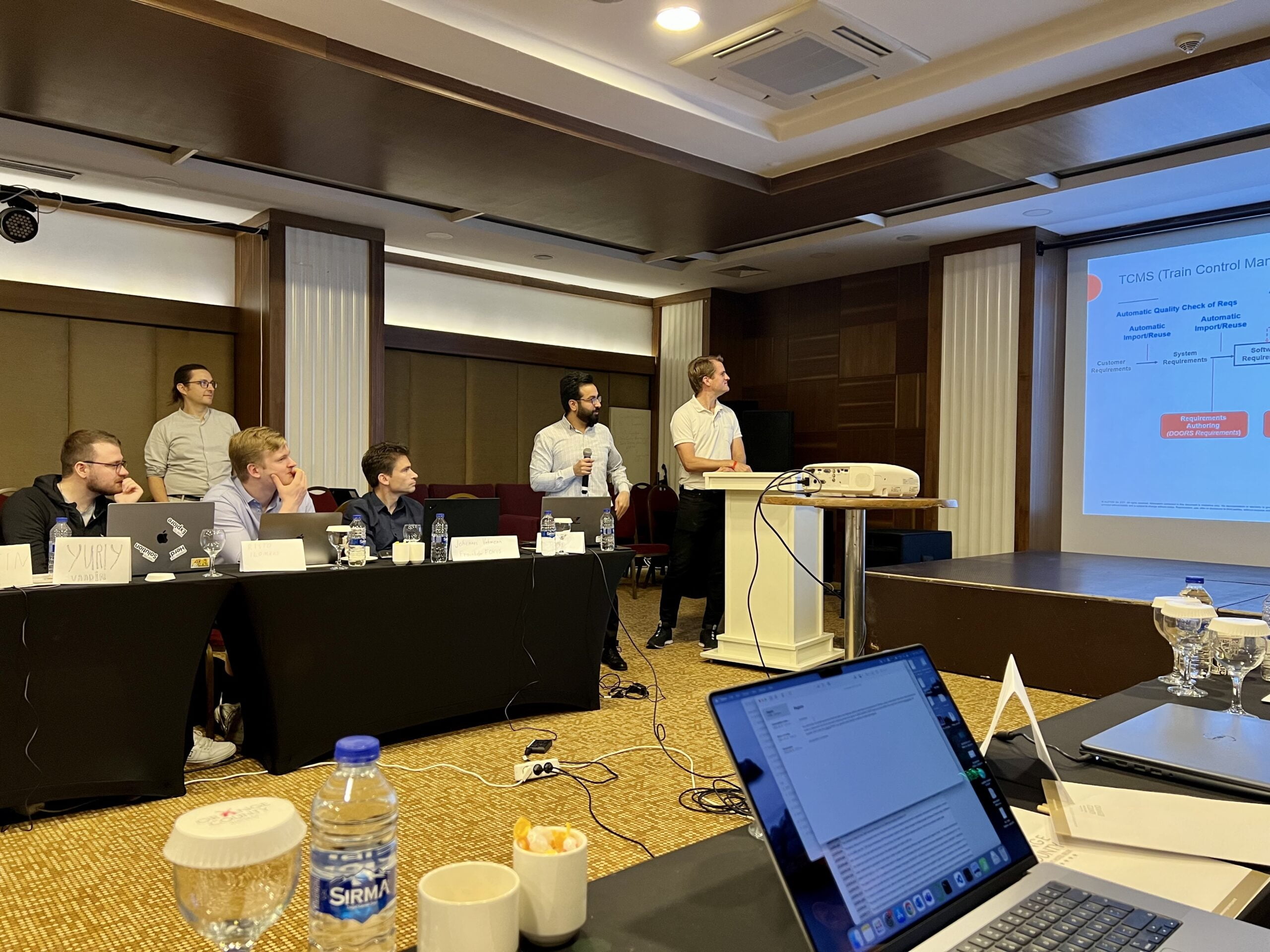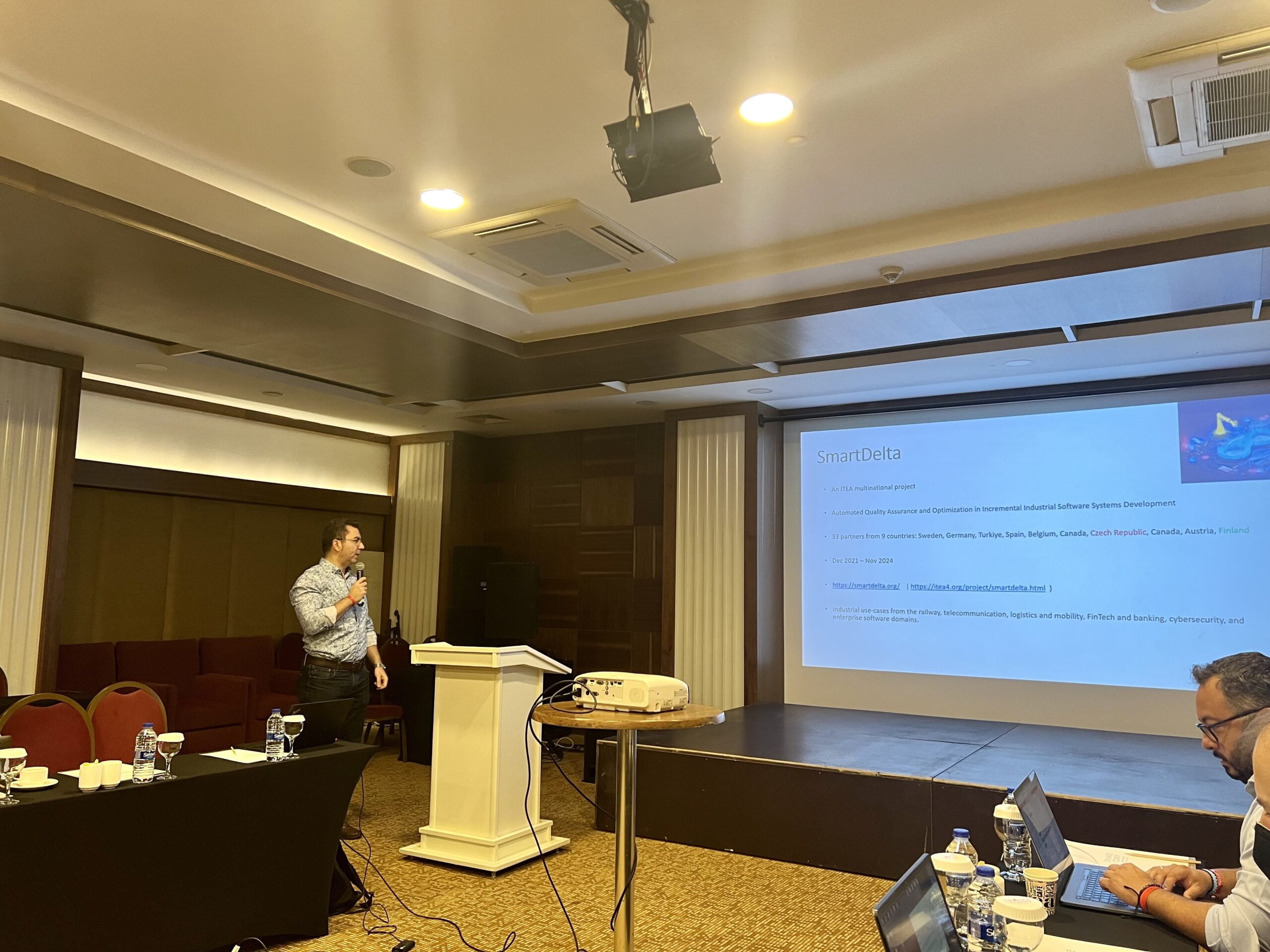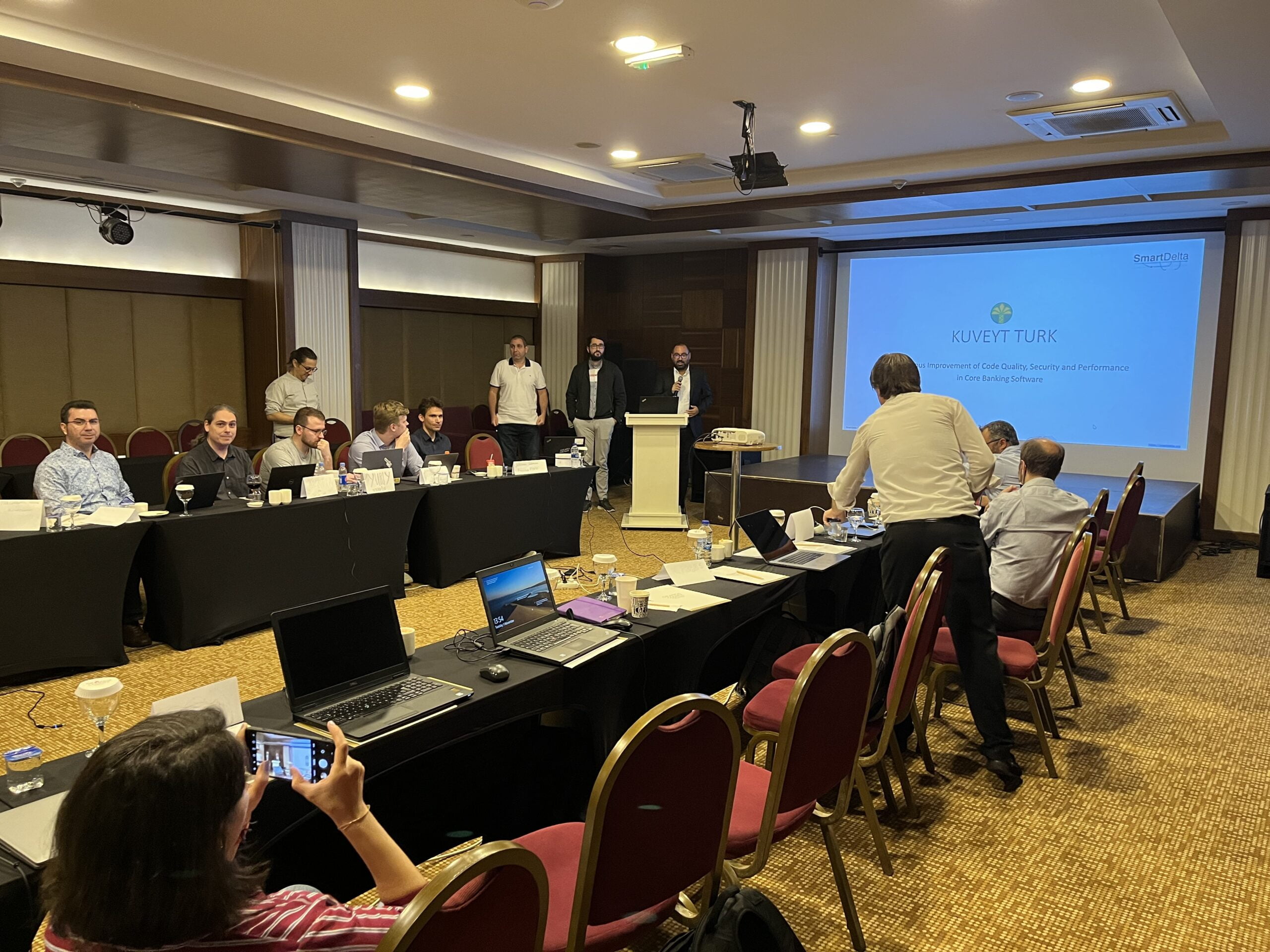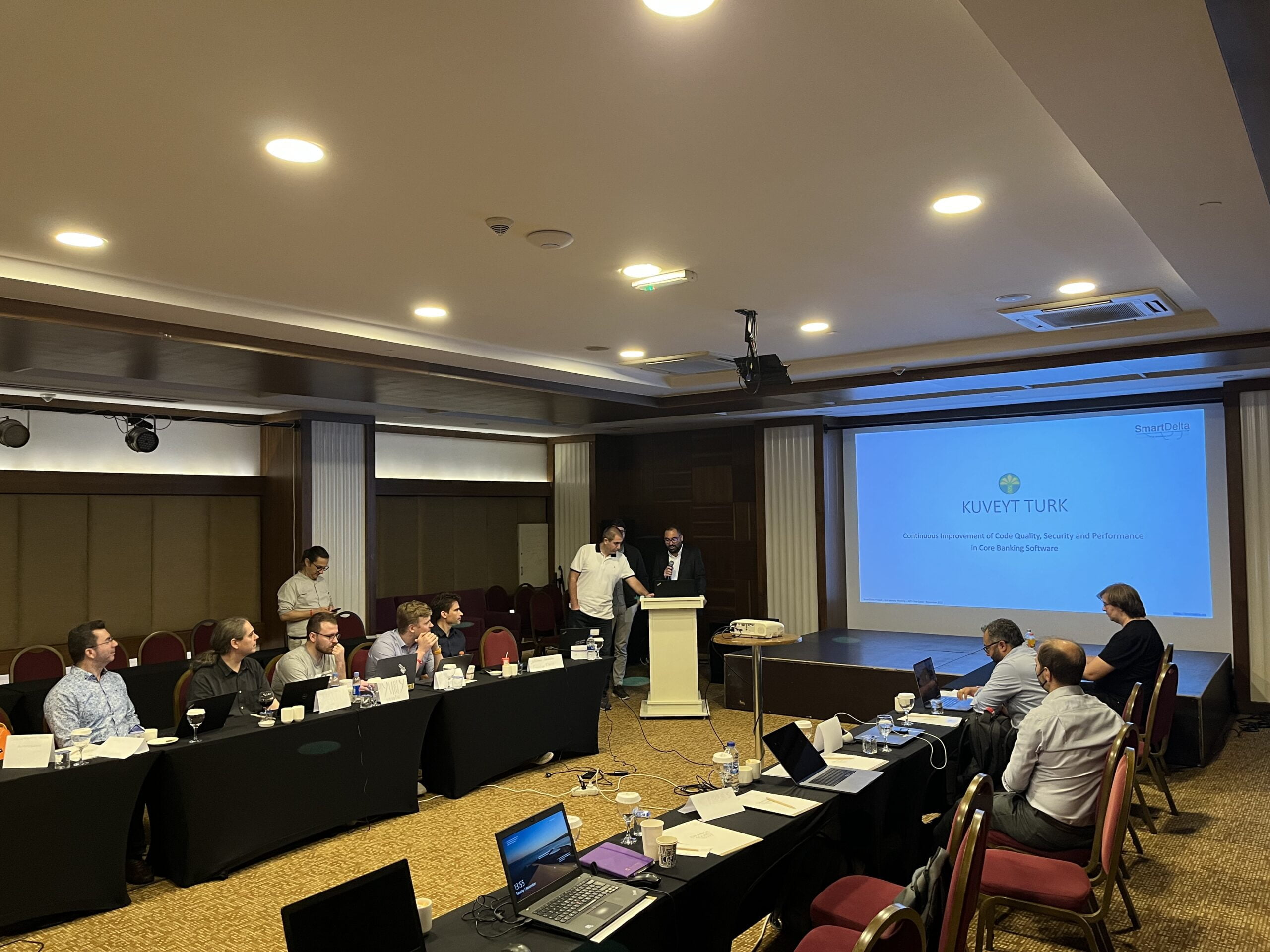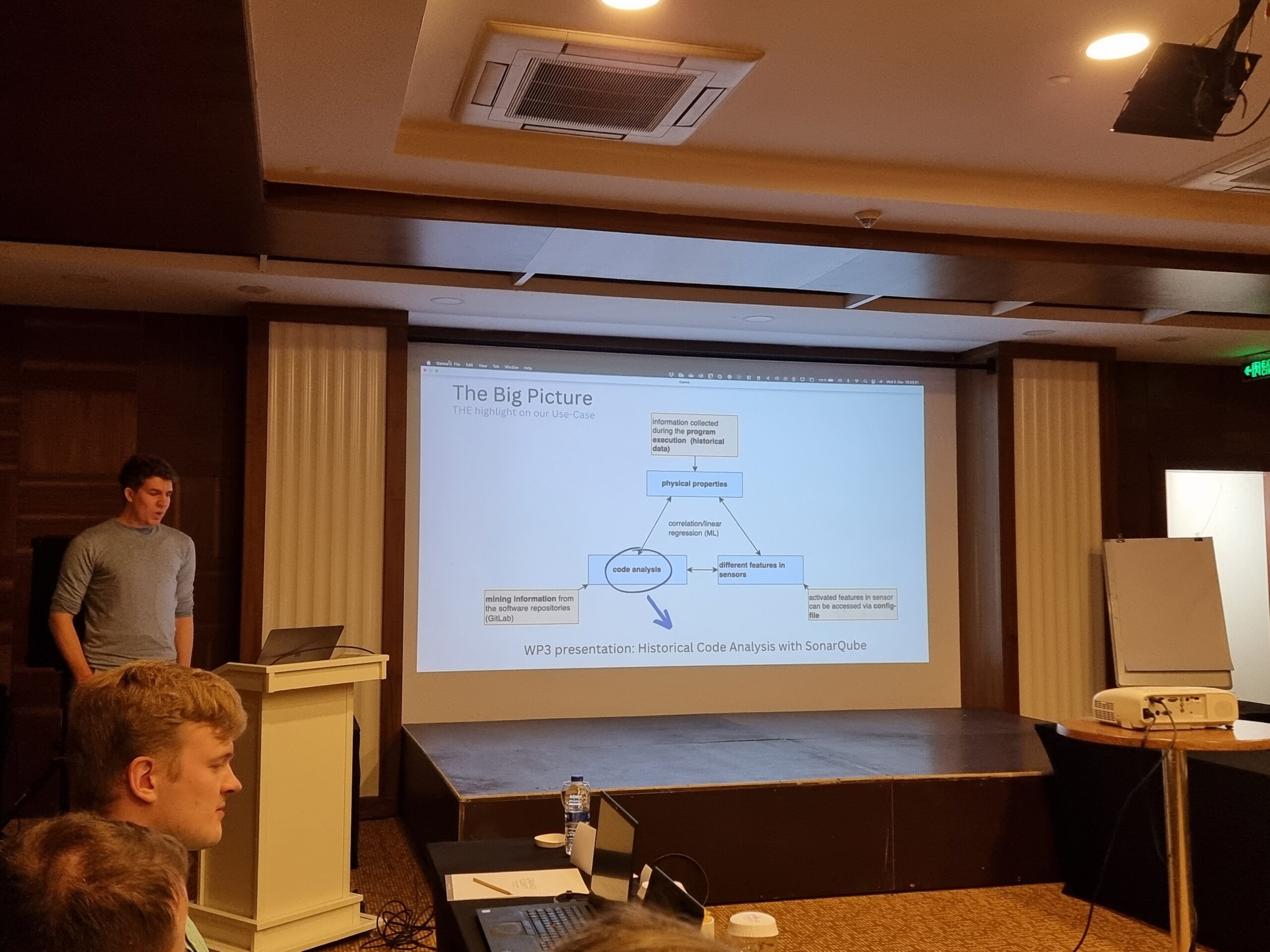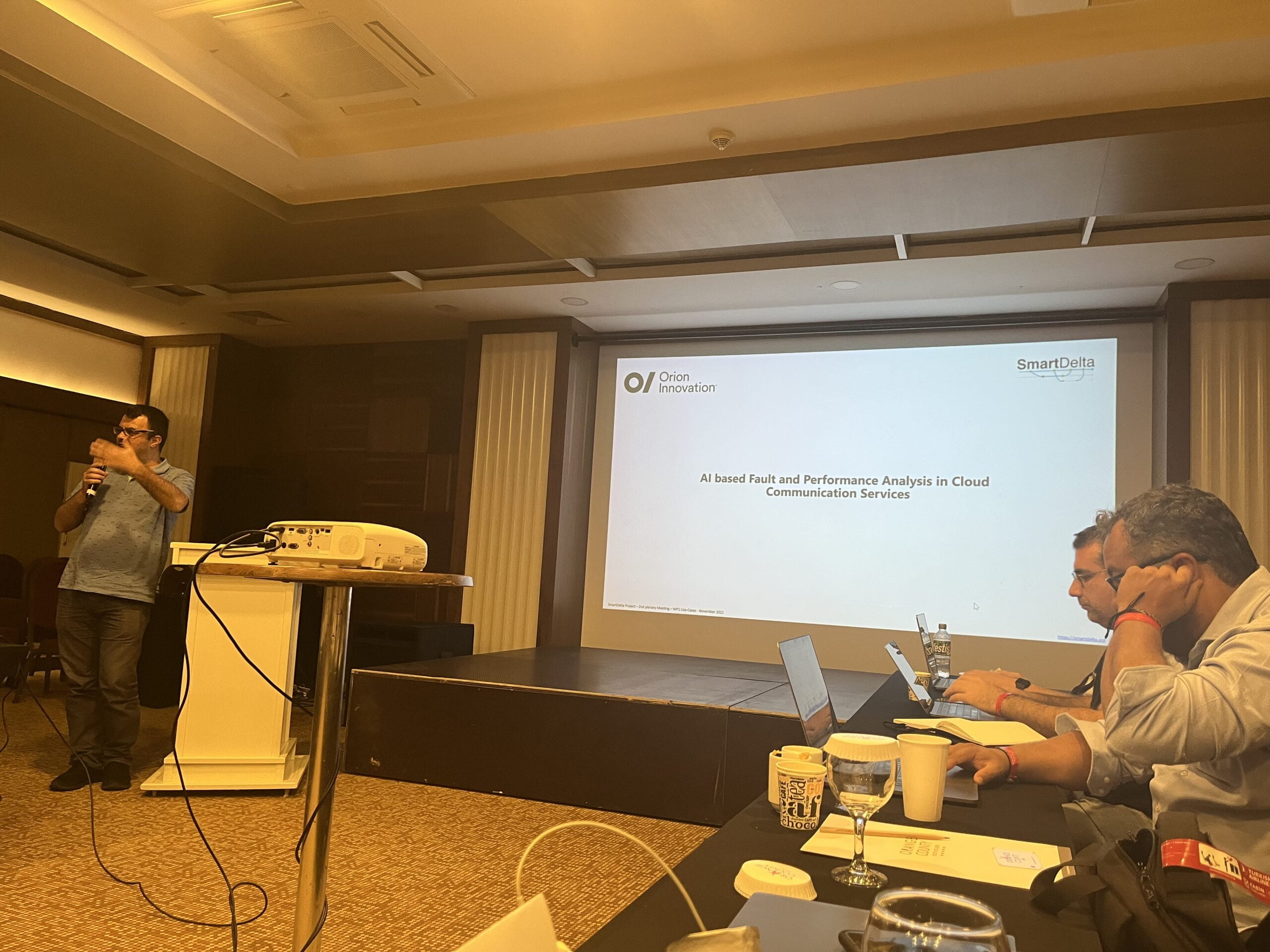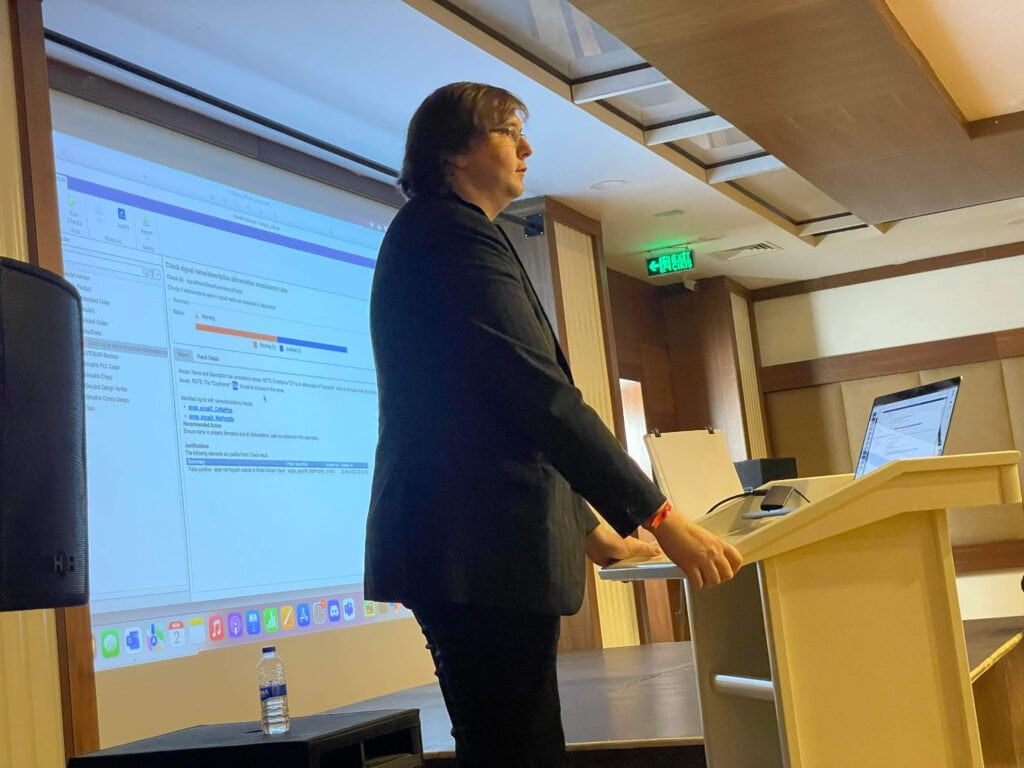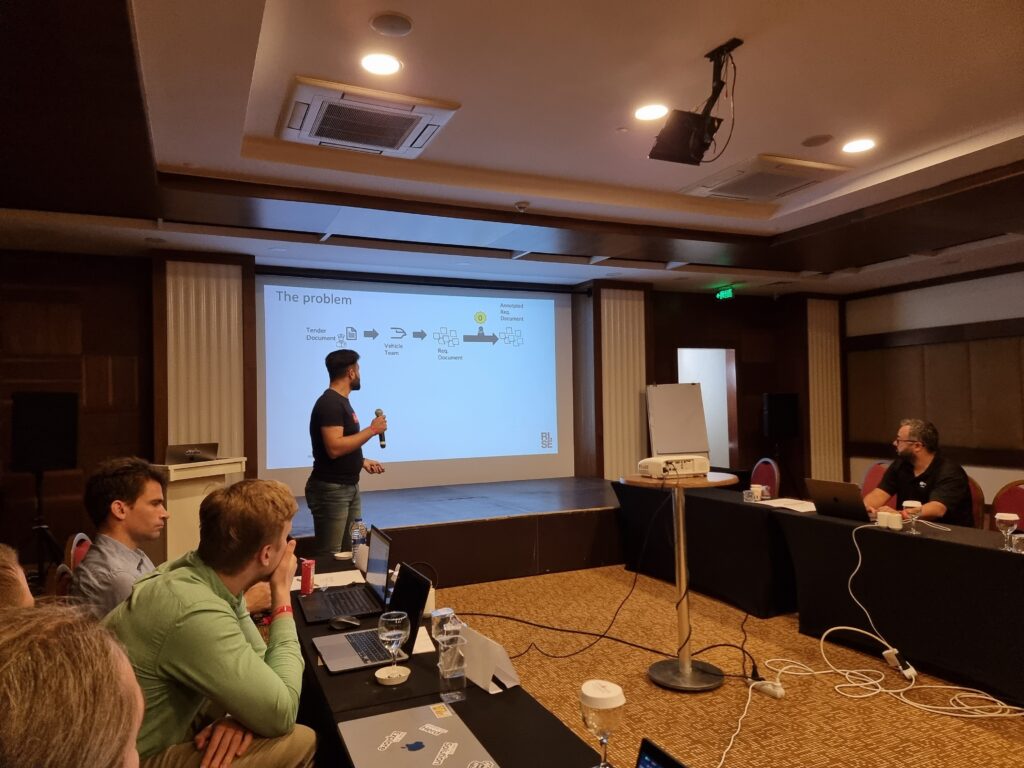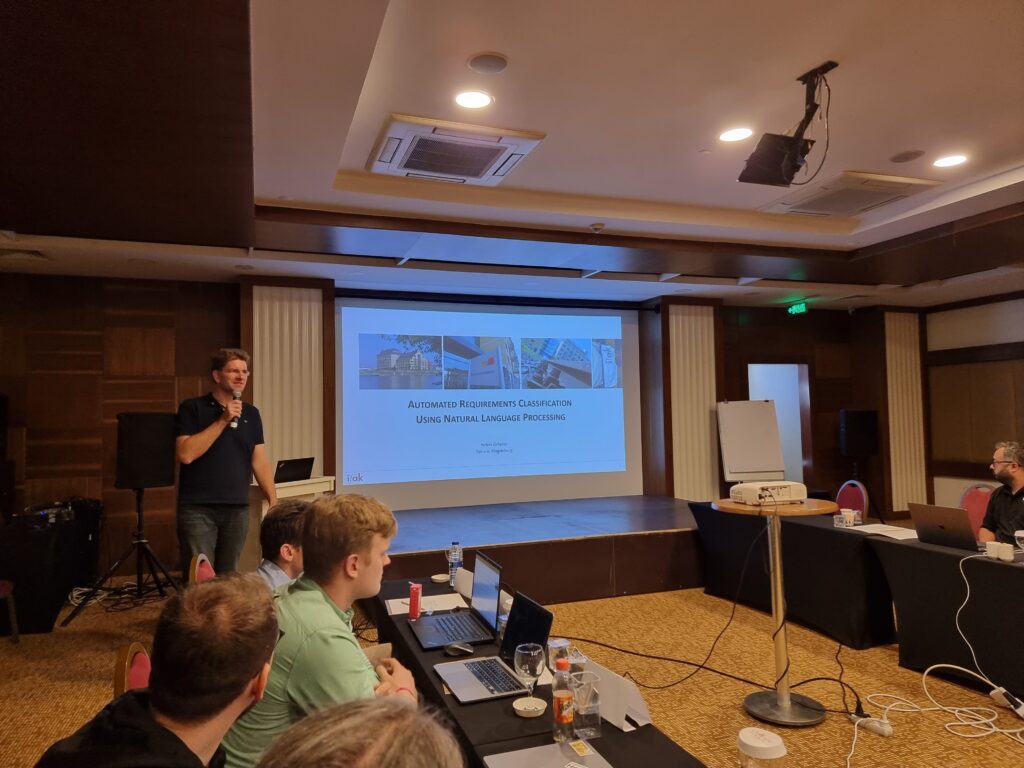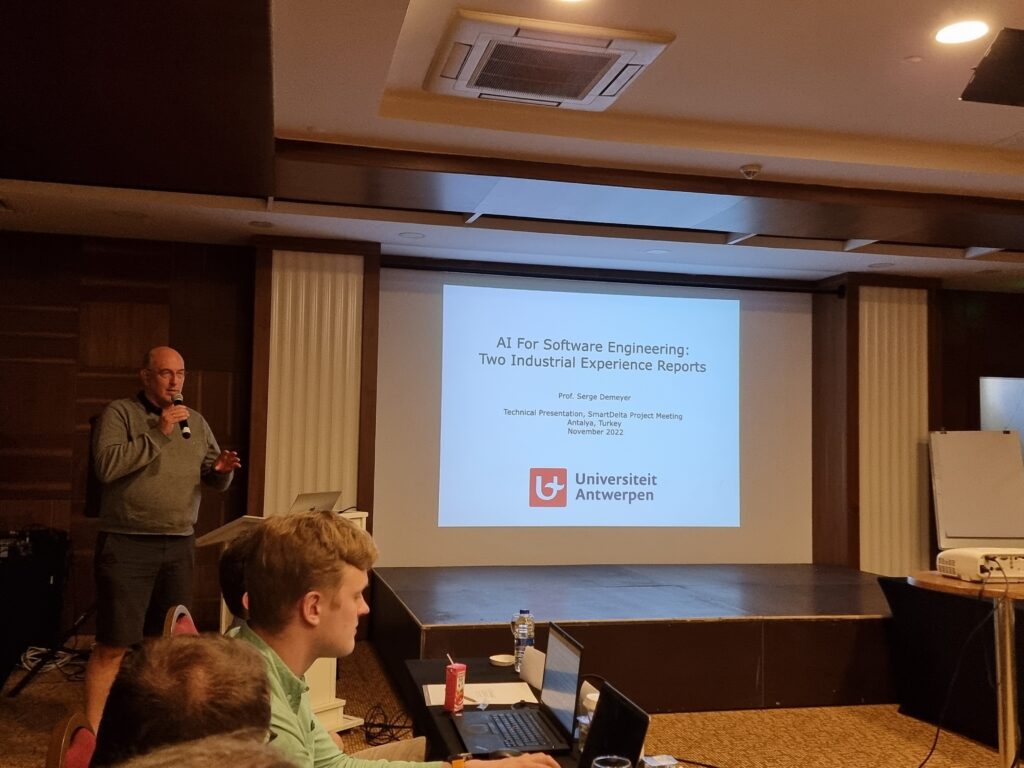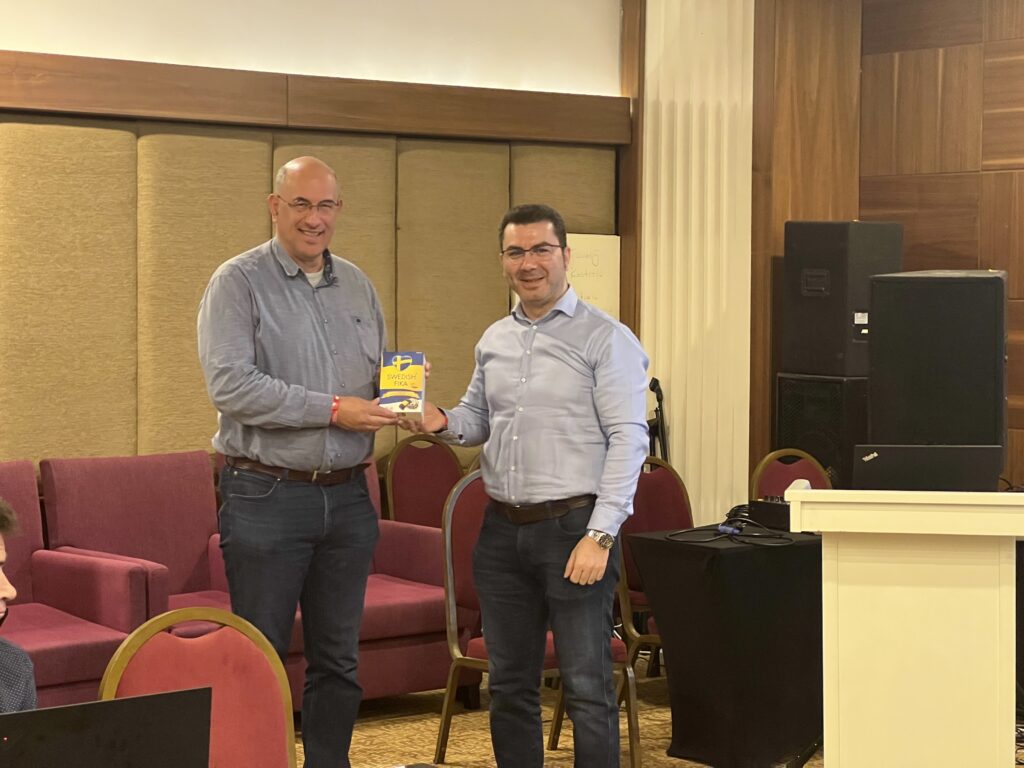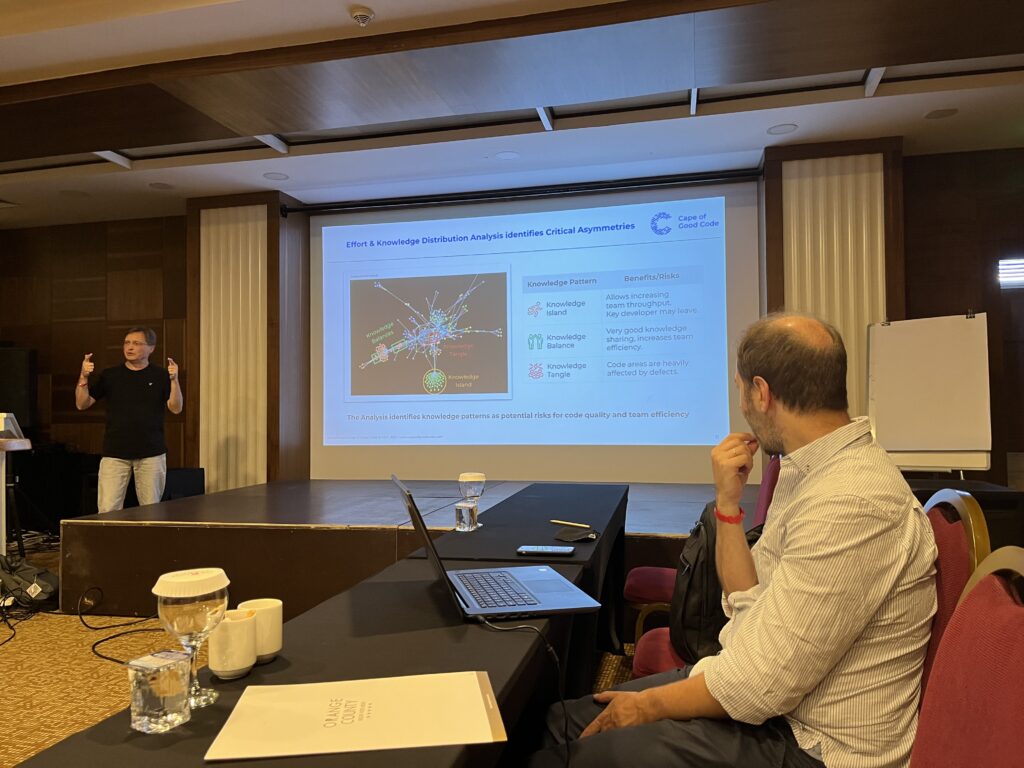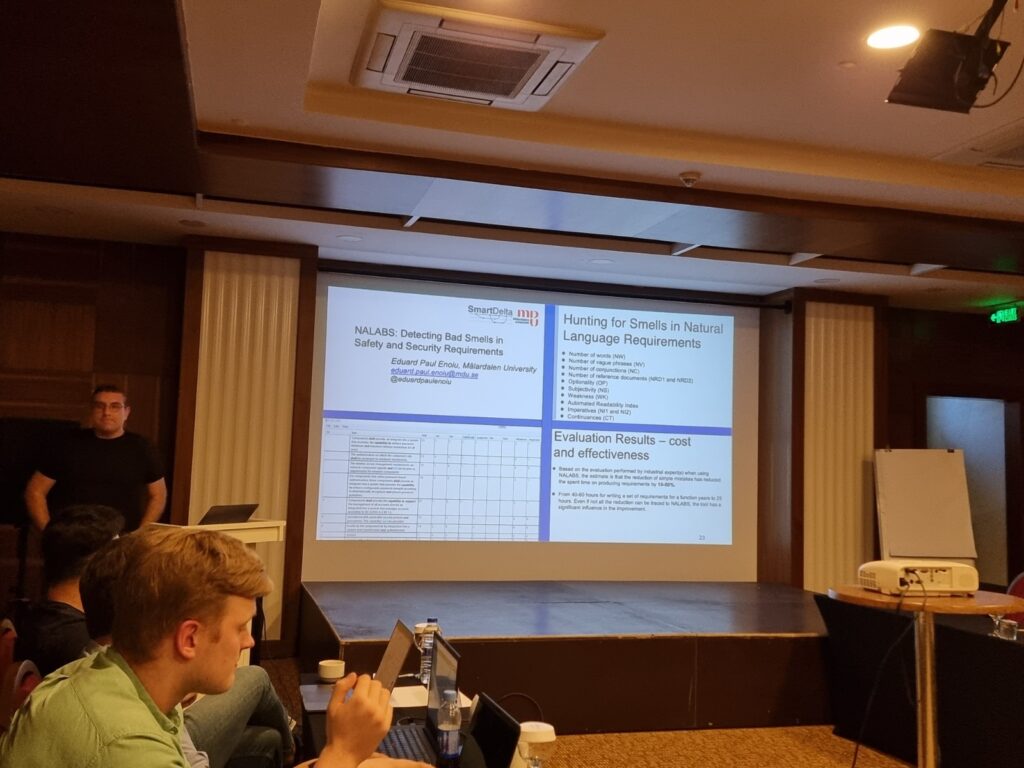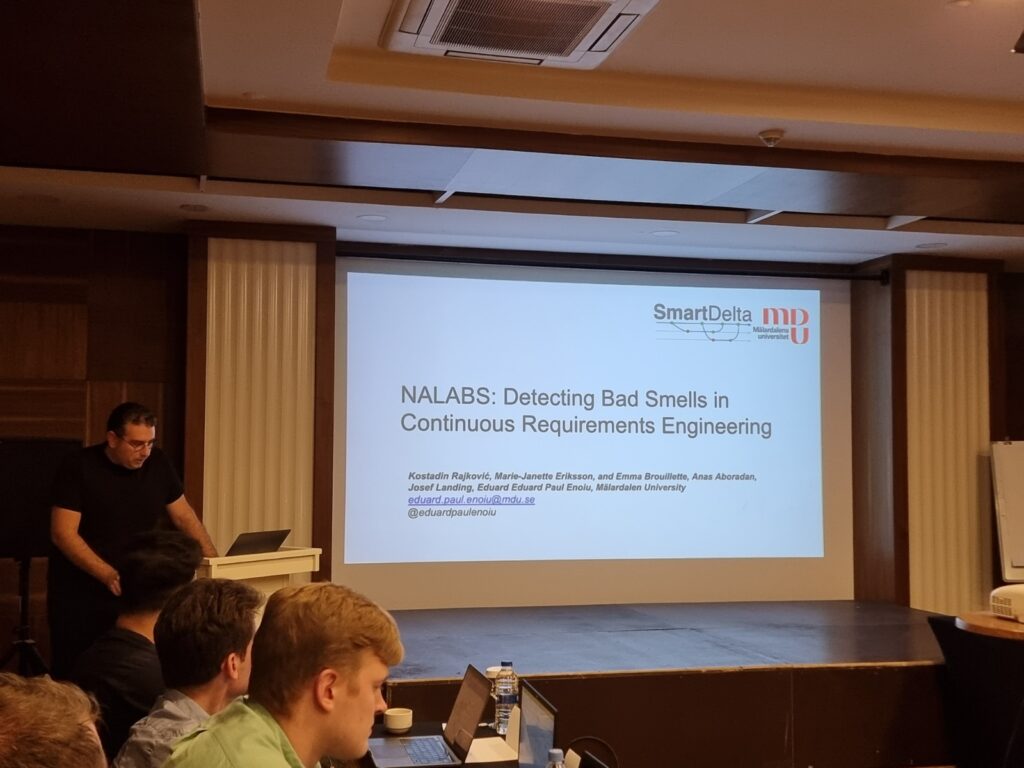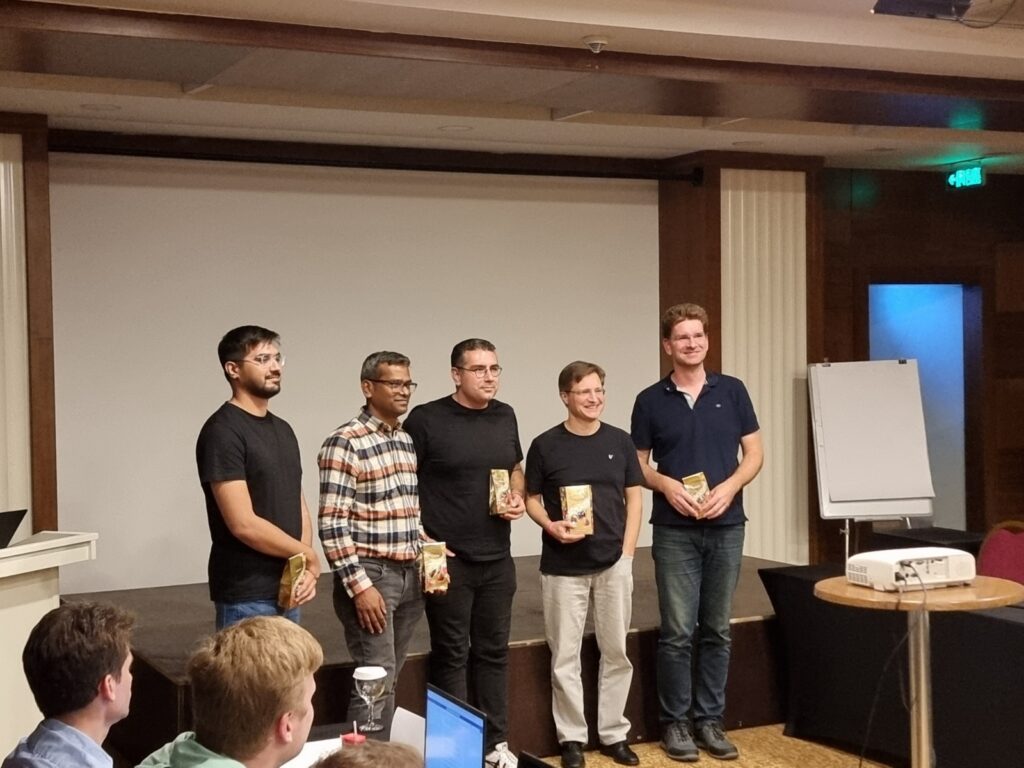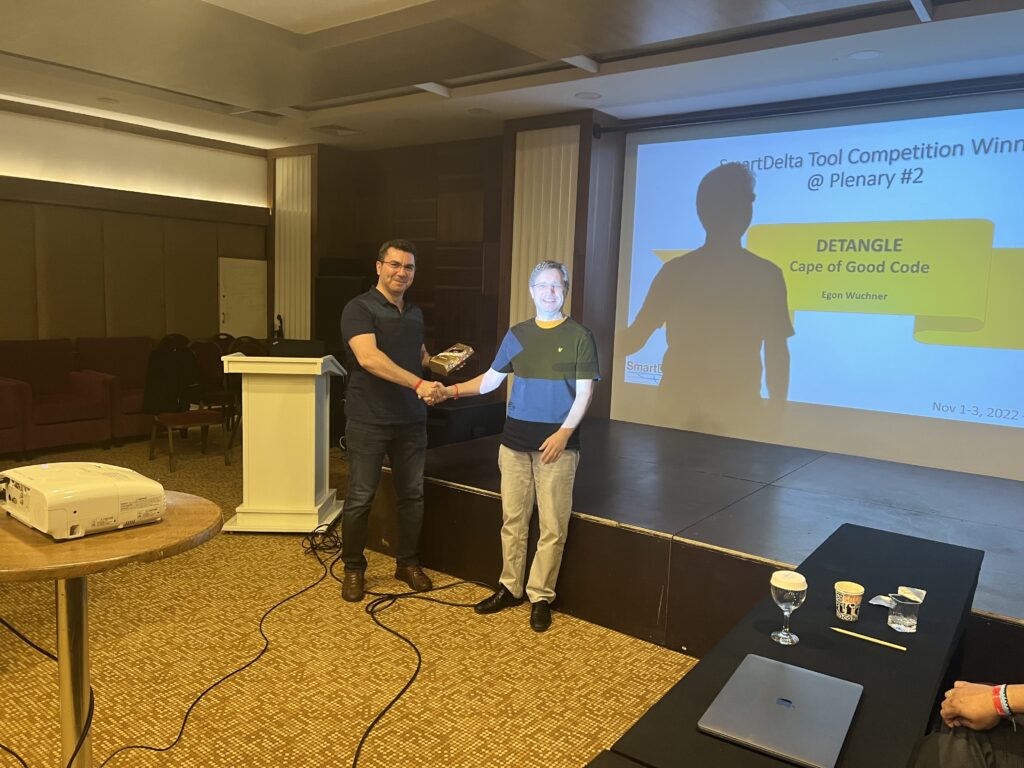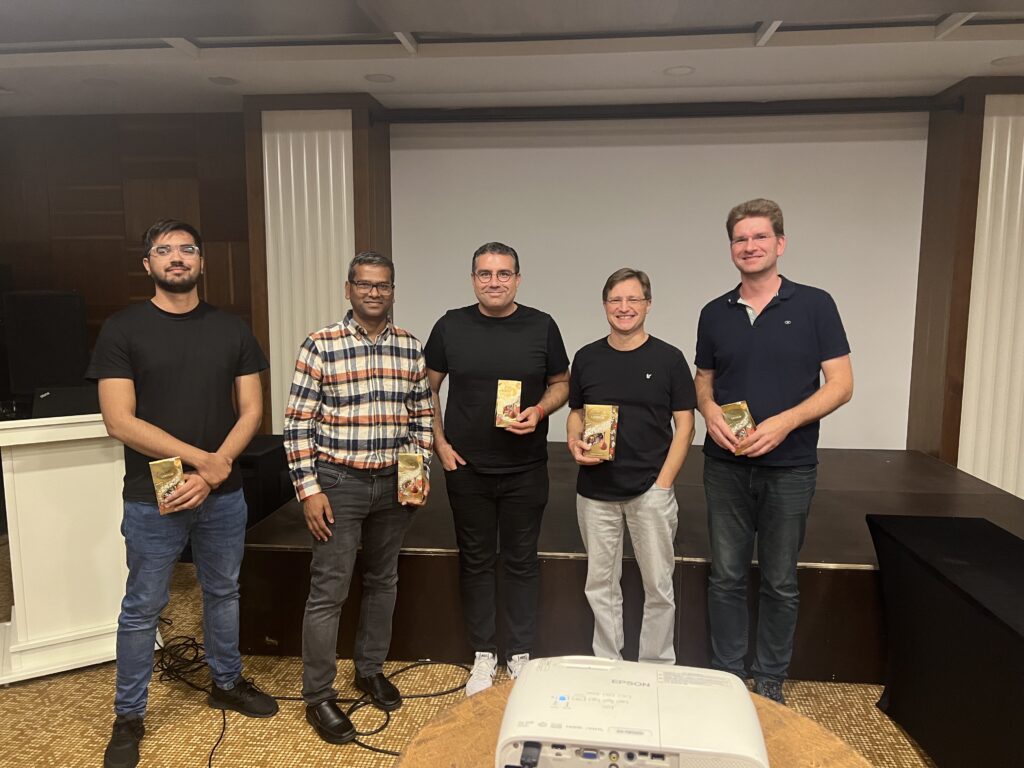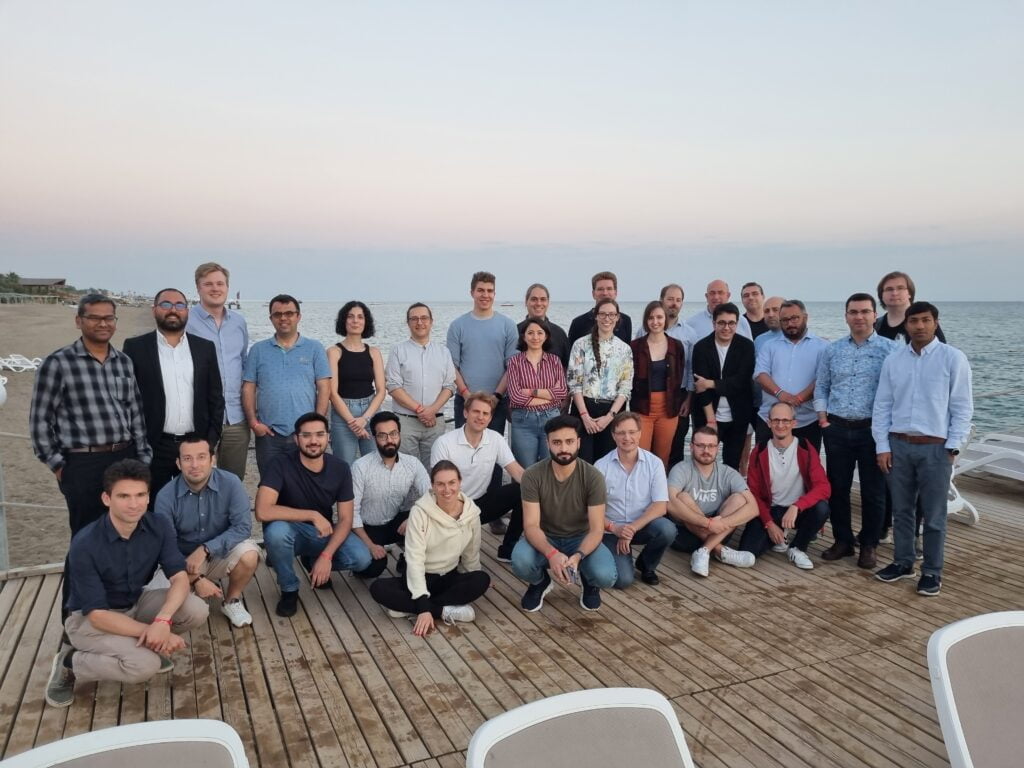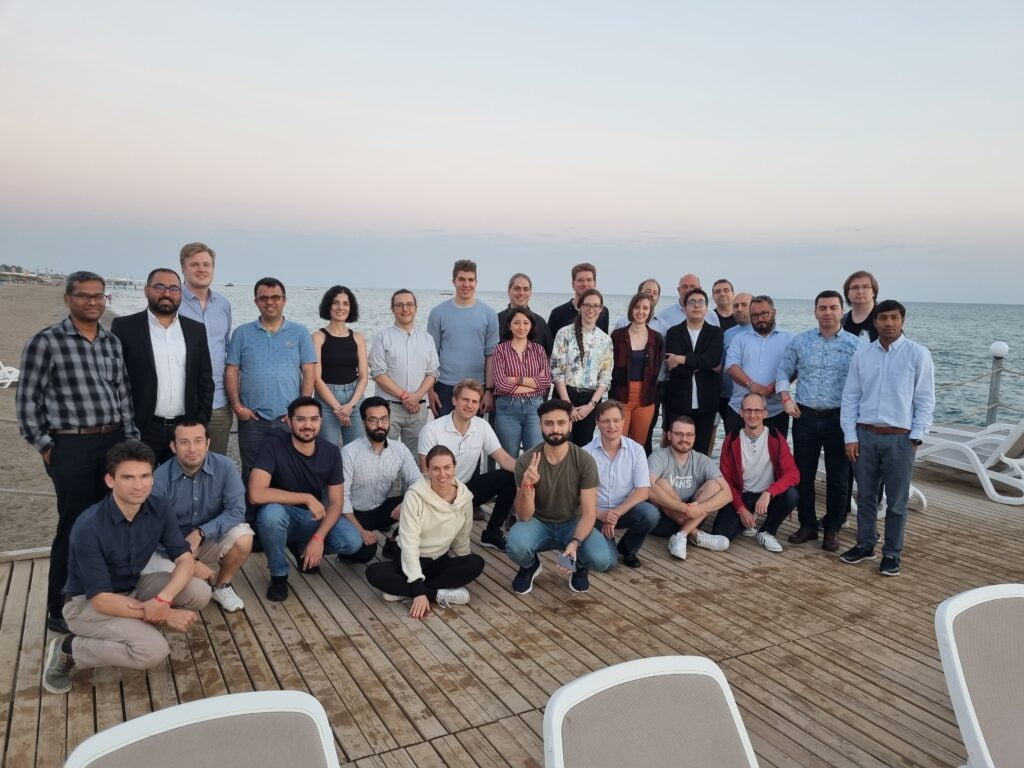The 2nd plenary meeting of the SmartDelta project was hosted by the Turkish consortium in Antalya, Turkiye. The meeting took place November 1-3, 2022.
The first day of the meeting started with the coordinator (Mehrdad Saadatmad from RISE) and the host (Özer Aydemir) welcoming the consortium and providing an overview of the project. This was followed by the 29 partners presenting a brief overview of their achievements in the project so far. Nicolas Bonnotte—from AKKA— chaired the discussions around Work Package (WP) 1 that focused on the various SmartDelta use cases and their relevant KPIs. Each SmartDelta partner with a use case gave a 15 minutes presentation outlining their industrial problems and how the SmartDelta solution providers have addressed them so far. The day continued with Juan Miguel Gomez (UC3M) leading discussions on WP2, which focuses on model generation and evolution in a version and variant-intensive context.
The second day started with a session on WP3, which focuses on Delta-oriented quality attributes evaluation. Eduard Enoiu from MDU chaired the session presenting a brief overview of the SmartDelta methodology for delta-oriented quality assurance. The remainder of the session consisted of technical talks—from Jean Malm (MDU), Benedikt Dornauer (c.c.com), and Sorin Patrasoiu (WithSecure)—on the use of static analysis for quality assurance and test generation.
Akramul Azim (Ontorio Tech. University) chaired the session on WP4, which focuses on quality improvement recommendations in variant and version-intensive systems. In the session on work package four, Muhammad Abbas (RISE) and Robin Gröpler (ifak) presented their work on the use of Natural Language Processing (NLP) and machine learning for various requirements engineering and reuse recommendation tasks.
As part of the second day, an invited talk on AI for software engineering was delivered by Prof. Serge Demeyer (University of Antwerp). The talk summarised their work on the use of AI for software engineering in two industrial cases. Various challenges such as test oracle, test data generation, and evaluation of AI tools were highlighted. The coordinator of the project presented the speaker with Swedish “Fika” (coffee snacks).
A tool competition was organized with the goal to raise discussion around the technical problems with the use cases and available solutions and tools within the consortium. A total of six tools developed in the SmartDelta consortium were presented. The presented tools targeted various use cases and software development life cycle areas, such as technical debt, code quality, requirements allocation, and issue classification, to name a few. The participants voted for the tools based on relevance to SmartDelta, technical innovation, readiness/maturity, usability & ease of use, and exploitation & commercialization capacity. The tool from Cape of Good Code—DETANGLE— was rated the highest based on the above-mentioned criteria and was awarded the first prize.
The second day ended with a session of WP5 with a focus on integrating and visualizing data relevant to the SmartDelta solutions in a dashboard. Bilge Özdemir (Dakik)—who chaired the session on this work package discussed various visualization technologies for SmartDelta results.
The third day of the meeting was focused on WP6 regarding dissemination and project management. Dissemination and exploitation strategies were discussed per SmartDelta partner. Furthermore, plans for standardization and the upcoming ITEA review were discussed.
SmartDelta’s consortium consists of 29 partners representing eight countries and seven industrial domains. A total of 35 individuals from different partner organizations attended the second plenary meeting.
